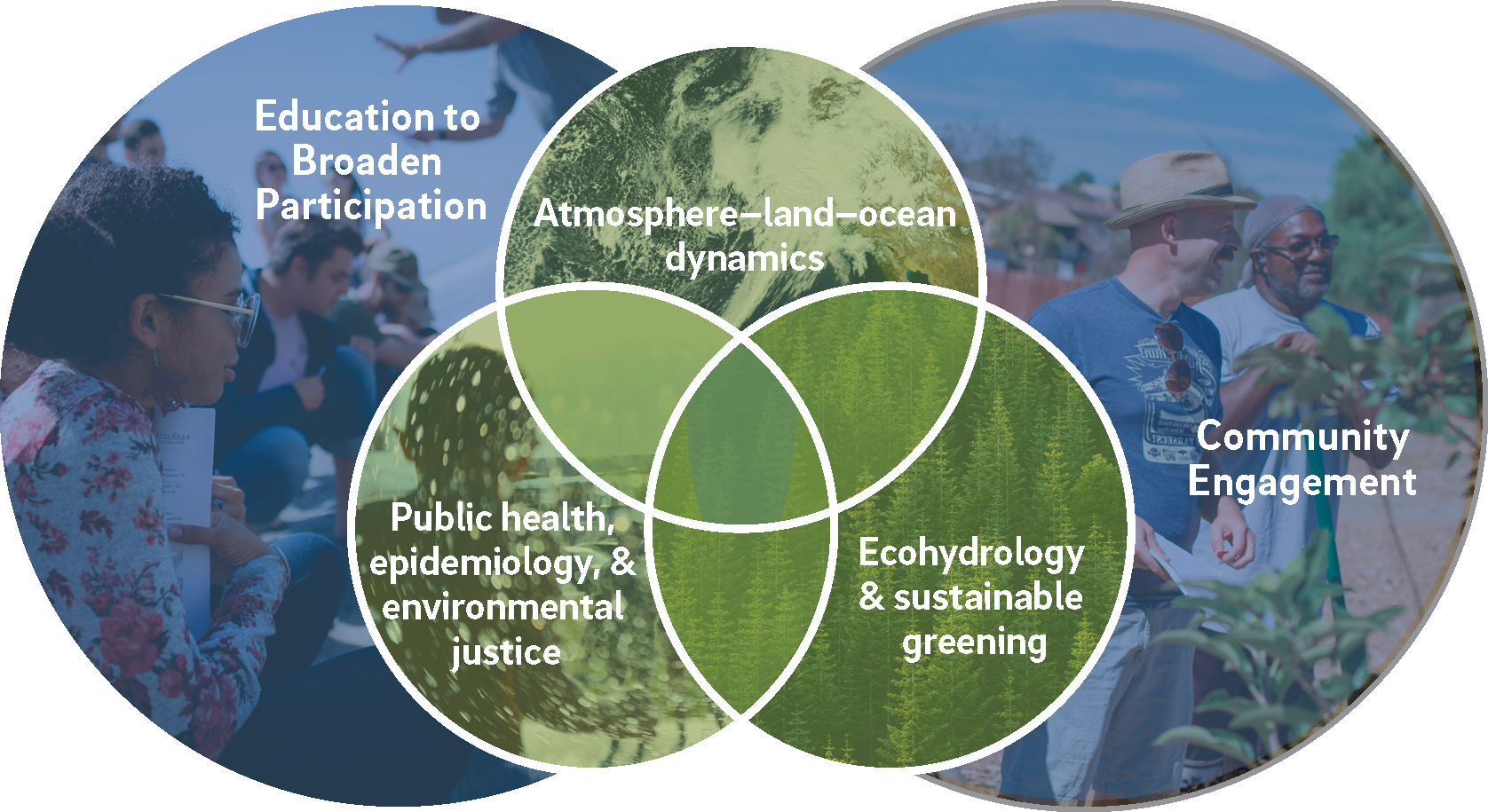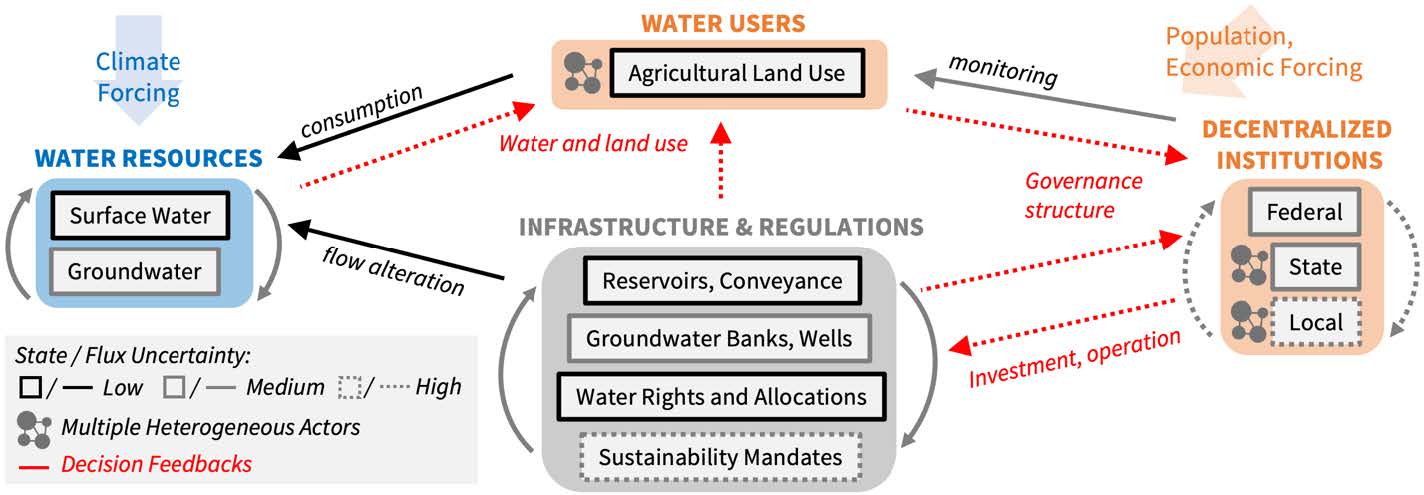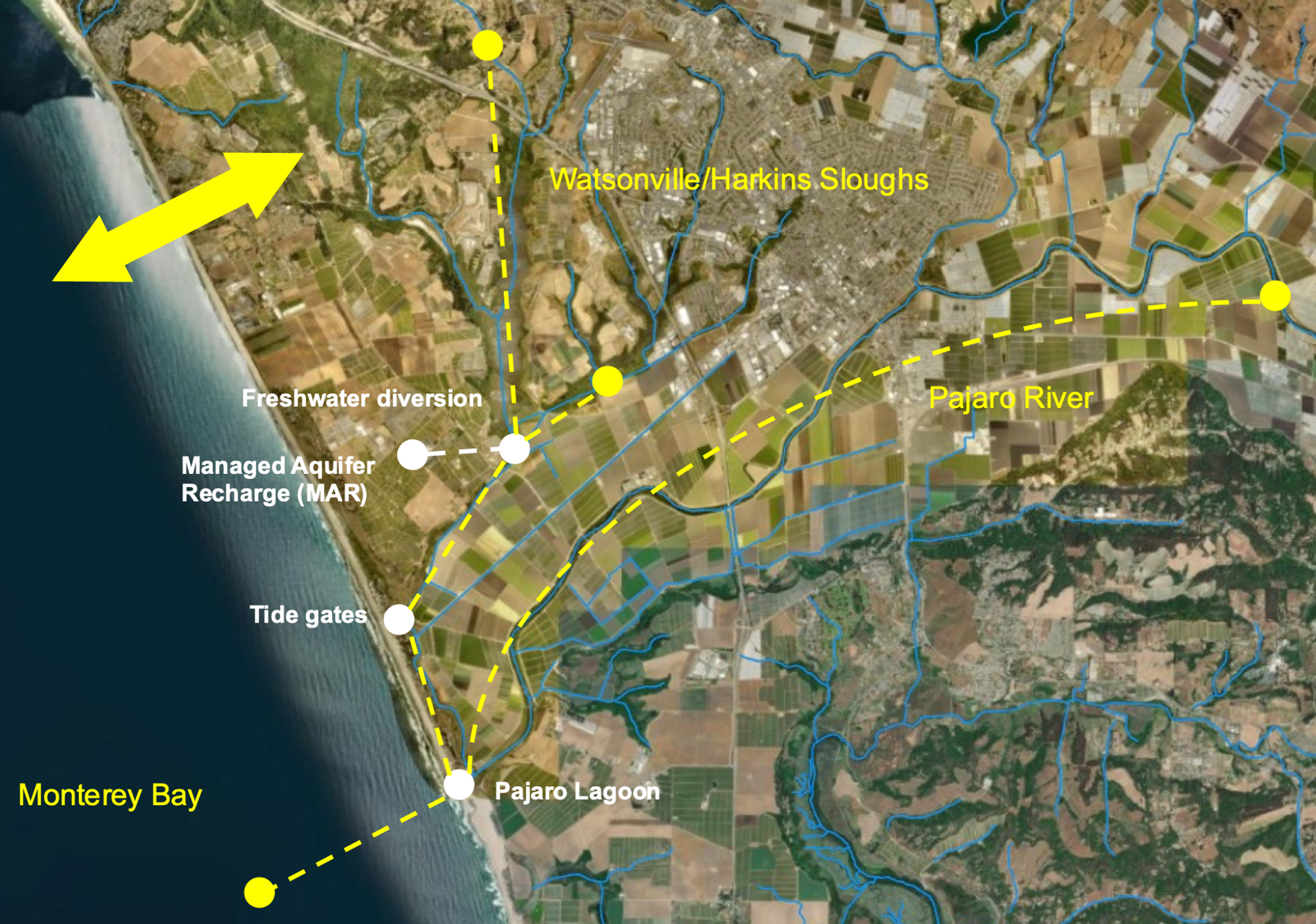Morgan Levy aims to do data-driven, policy-relevant research that connects climate to environmental and human health through terrestrial water cycle processes.
Morgan Levy uses methods from environmental and climate science, data science, and hydrology to study water resources and anthropogenic change. She is interested in the effects of anthropogenic change on freshwater systems, including climate change, land use change, and human water use and management. Her research uses data-driven analysis methods and combines diverse data sources, including in situ weather and hydrologic monitoring, remotely-sensed climate and land surface data, and social demographic and survey data. Levy’s research addresses the practical challenges of combining methods from engineering, earth, and social sciences in order to investigate connections between climate, water, and society.
Projects:
SoCal Heat Hub: Investigating extreme heat and its impacts in coastal Southern California
What drives patterns of extreme heat? Who feels the effects of extreme temperatures most strongly? How does the built environment play a role? Can vegetation help ease the impacts of heat? How do we ensure that green intervention strategies are sustainable in a region that’s prone to drought?

Ecohydrology and sustainable greening:
This research aims to answer the broad question: Where and how can green space be used as an effective heat adaptation strategy, and what are the associated climate and water resource constraints?
Decentralized management of integrated water resources: Understanding cross-scale decision feedbacks to support coordinated sustainability
What processes describe the emergence and interaction of decentralized water institutions and infrastructure across scales, and how do these align with climate risks? How do differences in resources, information, and regulations drive decision making among water users and institutions? How do uncertainties in endogenous feedbacks and exogenous climate interact, propagate, and ultimately influence adaptation by different actors?

This project focuses on California’s Central Valley, where surface and groundwater are managed through an evolving network of infrastructure and regulation to support agriculture, cities, and the environment. This research will advance quantitative understanding of the feedbacks governing decentralized water resources systems, and the system-level dynamics that result. This will be achieved through data-driven approaches to describe interactions among infrastructure operators, regulators, and local/regional water districts, enabling a broad evaluation of emergent behavior and opportunities for coordination.
NSF Dynamics of Integrated Socio-Environmental Systems (DISES), 2022 – 2027, Award #2205239
Climate variability, ocean dynamics, and coastal freshwater
Can we identify meaningful relationships between climate conditions, ocean conditions, freshwater conditions, and surface water and groundwater quantity and quality? Have climate-ocean-freshwater relationships changed in recent years, and will these relationships change in the future?
 In coastal regions, interactions between ocean and inland freshwater stream conditions challenge the assumption that sea level rise and inland freshwater and management are separable. Increasingly, in coastal communities worldwide, sea level change and climate cycle variability threaten coastal freshwater supply systems because water management adaptations in those regions are sensitive to coastal dynamics. This research will provide novel investigations that connect coastal oceanography, inland hydrology, and water management practices relevant to climate change adaptation in human-modified coastal water systems.
In coastal regions, interactions between ocean and inland freshwater stream conditions challenge the assumption that sea level rise and inland freshwater and management are separable. Increasingly, in coastal communities worldwide, sea level change and climate cycle variability threaten coastal freshwater supply systems because water management adaptations in those regions are sensitive to coastal dynamics. This research will provide novel investigations that connect coastal oceanography, inland hydrology, and water management practices relevant to climate change adaptation in human-modified coastal water systems.
COEQWAL (COllaboratory for EQuity in Water ALlocations), 2023-2025, University of California Climate Action Matching Grants
